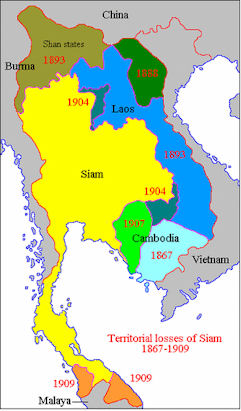

Zitierweise / cite as:
Payer, Alois <1944 - >: Chronik Thailands = กาลานุกรมสยามประเทศไทย. -- Chronik 2004 / B. E. 2547. -- 3. Juli bis Dezember. -- Fassung vom 2017-03-20. -- URL: http://www.payer.de/thailandchronik/chronik2004c.htm
Erstmals publiziert: 2012-11-04
Überarbeitungen: 2017-03-20 [Ergänzungen] ; 2016-06-02 [Ergänzungen] ; 2016-03-25 [Ergänzungen] ; 2016-01-25 [Ergänzungen] ; 2016-01-04 [Ergänzungen] ; 2015-06-07 [Ergänzungen] ; 2015-05-13 [Ergänzungen] ; 2014-10-31 [Ergänzungen] ; 2014-10-15 [Ergänzungen] ; 2014-04-04 [Ergänzungen] ; 2013-04-29 [Ergänzungen] ; 2013-04-25 [Ergänzungen und Teilung des Jahrgangs]; 2013-04-20 [Ergänzungen]; 2013-04-09 [Ergänzungen]; 2013-03-27 [Ergänzungen]; 2013-03-21 [Ergänzungen]; 2013-03-16 [Ergänzungen]; 2013-03-11 [Ergänzungen]; 2013-01-30 [Ergänzungen]; 2013-01-13 [Ergänzungen]; 2012-11-13 [Ergänzungen]
©opyright: Dieser Text steht der
Allgemeinheit zur Verfügung. Eine Verwertung in Publikationen, die über übliche
Zitate hinausgeht, bedarf der ausdrücklichen Genehmigung des Herausgebers.
Dieser Text ist Teil der Abteilung
Thailand von
Tüpfli's Global Village Library
ช้างตายทั้งตัวเอาใบบัวปิดไม่มิด
|
Gewidmet meiner lieben Frau Margarete Payer die seit unserem ersten Besuch in Thailand 1974 mit mir die Liebe zu den und die Sorge um die Bewohner Thailands teilt. |
|
Bei thailändischen Statistiken muss man mit allen Fehlerquellen rechnen, die in folgendem Werk beschrieben sind:
Die Statistikdiagramme geben also meistens eher qualitative als korrekte quantitative Beziehungen wieder.
|
2004-07
Registrierte Migranten aus Myanmar, Laos und Kambodscha:
Abb.: Beim Innenministerium registrierte Migranten aus Kambodscha, Laos und Myamnar, 2004-07
[Bildquelle: Jerrold W. Huguet ; Sureeporn Punpuing, 2005. -- http://www.childtrafficking.com/Docs/iom_2005_international_migration_in_thailand_15.pdf. -- Zugriff am 2012-01-20]
2004-07-01
Fremdarbeiter beginnen, sich für Ein-Jahres-Arbeitskarten registrieren zu lassen. Damit haben sie die Arbeits- Aufenthaltsberechtigung für 12 Monate, auch wenn sie arbeitslos sind. Damit sollen Fremdarbeiter der Erpressung durch Arbeitgeber und -vermittler entzogen werden. Bei den Fremdarbeitern handelt es sich vor allem um Birmanen, Laoten und Kambodschanern, die in schlecht bezahlten und als niedrig betrachteten Berufen arbeiten.
2004-07-02 - 2007-07-21

Ralph Leo "Skip" Boyce (1952 - ) ist US-Botschafter in Thailand.
Abb.: Ralph Leo "Skip" Boyce, ca. 2004
[Bildquelle: U.S. State Department / Wikipedia. -- Public domain]
2004-07-03

Feierliche Eröffnung der Chaloem Ratchamongkhon (สายเฉลิมรัชมงคล) des Mass Rapid Transit (MRT, Bangkok Metro, รถไฟฟ้ามหานคร). Der König wählte dafür den glücksverheißenden Augenblick 19:19. Das System wurde von der deutschen Firma Siemens geliefert, installiert und wird von dieser Firma gewartet.
Abb.: Bangkok Metro (รถไฟฟ้ามหานคร)
[Bildquelle: Hdamm / Wikipedia. -- Creative Commons Lizenz (Namensnennung, share alike)]
Abb.: MRT-Station Silom (สถานีสีลม), 2006
[Bildquelle: PlusMinus / Wikipedia. -- GNU FDLicense]
Abb.: Aufforderung in der Bangkok Metro, 2007
[Bildquelle: Frédéric Gloor. -- http://www.flickr.com/photos/fredalix/2738337279/. -- Zugriff am 2012-02-02. -- Creative Commons Lizenz (Namensnennung, keine kommerzielle Nutzung, share alike)]
"The MRT was constructed under a concession concept. For the first MRT line, officially known as Chaloem Ratchamongkhon (สายเฉลิมรัชมงคล) or informally as the "Blue Line", most civil infrastructure were provided by the government sector, Mass Rapid Transit Authority of Thailand (MRTA), and handed over to their concessionaire under a 25-year concession agreement. Bangkok Metro Company Limited (BMCL) is the only private sector company that won a bid in MRTA's concession contract for the blue line. As MRTA's concessionaire, BMCL provides M&E equipment, including electrical trains, signalling systems, SCADA, communication, PSD, etc. for the subway project and fully operates the system. To maintain the system, BMCL has subcontracted in 10 years to Siemens which was the M&E system supplier since system opening and 7 years maintenance contract to two local maintenance services for north and south line. The construction of the first Bangkok Metro line, officially known as Chaloem Ratchamongkhon (Thai สายเฉลิมรัชมงคล) – "Celebration of Royal Auspice" – or informally as the "Blue Line", began on 19 November 1996. The project suffered multiple delays not only because of the 1997 economic crisis, but also due to challenging civil engineering works of constructing massive underground structures deep in the water-logged soil upon which the city is built.
The Blue Line was opened for a limited public trial period of several weeks starting on 13 April 2004. On 3 July 2004 the line was officially opened at 19:19 local time by HM King Bhumibol and Queen Sirikit, who were accompanied by other members of the royal family. Within 30 minutes of its opening, sightseers filled the system to its maximum capacity, but after the initial rush ridership has settled down to around 180,000 riders daily — considerably lower than projections of over 400,000, despite fares being slashed in half from 12-38 baht to 10-15 baht per trip. From 2006 until 2008, fares ranged between 14-36 baht per trip. The fare was raised to 16-41 Baht on 1 January 2009.
OperationThe 21-kilometer, 18-station Blue line presently runs from Bang Sue (สถานีบางซื่อ) to Hua Lamphong (สถานีหัวลำโพง) via Phra Ram 9 (สถานีพระราม 9) and has a carrying capacity of 40,000 people in each direction per hour. Similar to the Skytrain (รถไฟฟ้าบีทีเอส), the Metro uses trains supplied by Siemens which travel up to 80 km/h. Passengers can conveniently connect to the Skytrain at Silom (สถานีสีลม), Sukhumvit (สถานีสุขุมวิท) and Chatuchak Park (สถานีสวนจตุจักร) stations. The metro has a large depot in Huai Khwang (ห้วยขวาง) district, which is located between Phra Ram 9 (สถานีพระราม 9) and Thailand Cultural Centre (สถานีศูนย์ วัฒนธรรมแห่งประเทศไทย) stations.
Considering that Bangkok is a low-lying plain which is prone to flooding, all of the Metro's station entrances are raised about one metre above the ground level and are equipped with built-in floodgates in order to avoid water inundating the system. Lifts and ramps are found at all stations, providing easy access for passengers in wheelchairs. Stations have multiple passage ways (generally four) which allow passengers to connect to any corner of the adjacent surface intersection. Passageways between exits are very spacious and some are beginning to open as malls. Maps depicting the local area and exit points are posted on the walls on the way out.
Due to safety considerations, platform screen doors are installed. Uniformed security personnel and security cameras are present at each and every platform. Currently 19 three-car metro trains, of the Siemens Modular Metro type, are used. Each metro train consists of two motor cars and a centre trailer car."
[Quelle: http://en.wikipedia.org/wiki/Mass_Rapid_Transit_%28Bangkok%29. -- Zugriff am 2012-01-02]
2004-07-05

Ministerpräsident Thaksin unterzeichnet in Canberra (Australien) das Freihandelsabkommen mit Australien.
Abb.: Lage von Canberra
[Bildquelle: OpenStreetMap. -- Creative Commons Lizenz (Namensnennung, share alike)]
2004-07-06
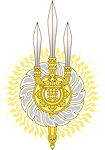
Das Verfassungsgericht (ศาลรัฐธรรมนูญ) erklärt die Ernennung von Jaruvan Maintaka (จารุวรรณ เมณฑกา, 1945 - ) zum Auditor-General (ผู้ว่าการตรวจเงินแผ่นดิน) als gesetzeswidrig und setzt sie ab. Sie hatte den Posten seit zwei Jahren inne. Jaruvan weigert sich, den Posten zu verlassen, solange der König nicht die Ernennung eines Nachfolgers unterzeichnet hat. Obwohl der Senat 2005 Wisut Montriwat zum neuen Auditor-General ernennt, verweigert der König seine Unterschrift.
Abb.: Jaruvan Maintaka (จารุวรรณ เมณฑกา)
[Bildquelle: http://www.oag.go.th/EngAboutOAG/auditor_en.jsp. -- Zugriff am 2012-01-03. -- Fair use]
"Khun Ying Jaruvan Maintaka (Thai: คุณหญิง จารุวรรณ เมณฑกา, born 5 July 1945) is the current Auditor-General (Thai: ผู้ว่าการตรวจเงินแผ่นดิน) of the Kingdom of Thailand. She refused to resign her position after the Constitutional Court of Thailand (ศาลรัฐธรรมนูญ) ruled that her nomination was illegal. She is well known for her public criticism of deposed Premier Thaksin Shinawatra (ทักษิณ ชินวัตร). She has been criticized for nepotism, hiring her own son as a personal secretary using the state budget, bringing her children on a state-funded official trip, and her lack of transparency. Early life and education
Jaruvan was the oldest girl in a family of eight children. She converted to Protestant as a teenager. After attaining a bachelor’s degree from the commerce and accountancy faculty at Chulalongkorn University (จุฬาลงกรณ์มหาวิทยาลัย) she worked as an auditor. She is married and has three children. She graduated with an MBA from Michigan State University on Thai government scholarship. Upon returning to Thailand, she joined the Thai Office of the Auditor-General.
Career as Government AuditorIn her auditing and accounting career, Jaruvan served as secretary-general and then vice chairman of the Institute of Internal Auditors of Thailand. She was also an auditing board member of the Civil Service Commission. She was also a member of the State Audit Commission (SAC, Thai: คณะกรรมการตรวจเงินแผ่นดิน) and Deputy Auditor General in the Office of the Auditor General.
Appointment as Auditor-GeneralJaruvan was one of three nominees for the position of auditor-general in 2001, along with Prathan Dabpet and Nontaphon Nimsomboon. Prathan received 5 votes from the 8-person State Audit Commission (SAC) chairman while Jaruvan received 3 votes. According to the constitution, State Audit Commission chairman Panya Tantiyavarong (ปัญญา ตันติยวรงค์) should have submitted Prathan's nomination to the Senate, as he received the majority of votes.
However, on July 3, 2001, the SAC Chairman submitted a list of all three candidates for the post of auditor-general to the Senate, which later voted to select Khunying Jaruvan Maintaka. For his decision, SAC Chairman Panya Tantiyavarong was later found by the Criminal Court to be guilty of malfeasance and was sentenced to serve three years in jail.
Jaruwan was appointed auditor-general on December 31, 2001 for a term of 5 years. She was responsible for carrying out all audit for government agencies. The questionable nature of her appointment would made her term a controversial one.[5]
Constitution Court ruling and subsequent controversyOn 24 June 2003, a petition was filed with the Constitutional Court (ศาลรัฐธรรมนูญ) seeking its ruling on the constitutionality of Jaruvan’s appointment by the Senate. The Constitutional Court ruled in 6 July 2004 that the selection process that led to the appointment of Khunying Jaruvan as auditor-general was unconstitutional. The court noted that the Constitution empowers the SAC to nominate only one person with the highest number of votes from a simple majority, not three as had been the case. The court stopped short of saying if she had to leave her post. However when the Constitutional Court ruled on July 4, 2002 that the then Election Commission chairman Sirin Thoopklam's election to the body was unconstitutional, the President of the Court noted "When the court rules that the selection [process] was unconstitutional and has to be redone, the court requires the incumbent to leave the post".
However, Jaruwan refused to resign without a royal dismissal from King Bhumibol Adulyadej (ภูมิพลอดุลยเดช). She noted ""I came to take the position as commanded by a royal decision, so I will leave the post only when directed by such a decision."
The commission had suspended her salary and position allowance one day after the Constitution Court ruling. The commission then told Khunying Jaruvan to hand over her duties and any state property to the Office of the Auditor-General.
Replacements appointedThe SAC appointed Puangrat Vongpo, her deputy, as acting auditor-general on July 8. When Puangrat retired on Sept 30, 2004, the commission appointed Jerarat Noppawong na Ayutthaya as acting auditor-general, effective from Oct 1.
The State Audit Commission later nominated Wisut Montriwat, former deputy permanent secretary of the Ministry of Finance, for the post of Auditor-General. The Senate approved the nomination on 10 May 2005. However, King Bhumibol Adulyadej, in an unprecedented move, withheld his royal assent. The National Assembly (รัฐสภาไทย) did not hold a vote to overthrow the royal veto. On October 2005 the Senate rejected a motion to reaffirm her appointment, and instead deferred the decision to the SAC.
The appointment of a replacement for Jaruvan was strongly criticized by the powerful Wang Nam Yen faction of the Thai Rak Thai party (พรรคไทยรักไทย), especially by MP Pramuan Ruchanaseree and faction leader Snoh Thienthong. In late 2005, the issue came close to breaking the Wang Nam Yen-faction from the TRT.
The controversy led many to reinterpret the political role of the King in Thailand's constitutional monarchy.
Protesting against the Thaksin governmentWhile her status as Auditor-General was still in contention, Jaruvan joined the Democrat Party (พรรคประชาธิปัตย์) and the People's Alliance for Democracy (พันธมิตรประชาชนเพื่อประชาธิปไตย) in petitioning the King to replace Thaksin Shinawatra as Prime Minister. However, demands for royal intervention met with much criticism. The King himself, in a speech on 26 April, responded "Asking for a Royally appointed prime minister is undemocratic. It is, pardon me, a mess. It is irrational"
ReinstatementOn 15 February 2006 The State Audit Commission (SAC) decided to reinstate Jaruvan as Auditor-General. Its unanimous decision came after it received a memo from the Office of King Bhumibol Adulyadej's Principal Private Secretary, advising that the situation be resolved. The SAC concluded by unanimous vote that the royal command that appointed Jaruvan was still in effect, despite the Constitution Court's ruling that her appointment was illegal and unconstitutional.
After the 2006 coupA military coup overthrew the Thaksin government on 19 September 2006. The junta abrogated the 1997 constitution and dissolved most state organizations created as a result of that constitution, but spared the Office of the Auditor-General.
Controversy surrounding the first AECThe junta soon made Jaruvan a member of an Assets Examination Committee (คณะกรรมการตรวจสอบการกระทำที่ก่อให้เกิดความเสียหายแก่รัฐ), tasked with investigating corruption allegations involving projects approved by the deposed government. Jaruvan threatened to resign from the Committee if its scope was not expanded to include all cases of alleged irregularity, including the personal wealth of former Cabinet ministers as well as "policy corruption", where policies were approved to allegedly benefit personal interests. Specifically, she wanted the Committee to investigate the sale of Shin Corporation to Temasek Holdings. Her lobbying was successful: the original AEC was dissolved in less than a week, she was appointed leader of a new 12-member committee with greater powers, including the power to freeze the assets of members of the Thaksin government accused of corruption. The new AEC was also empowered to investigate allegations of tax evasion. The leader of the original AEC, Sawat Chotephanich, was demoted in the new committee; he later resigned, reportedly in protest. The remaining members of the new committee included several figures who had been publicly critical of the Thaksin government, including Kaewsan Atibhoti (แก้วสรร อติโพธิ), Nam Yimyaem (นาม ยิ้มแย้ม), and Sak Korsaengreung.
Results of investigations FIDF land purchaseThe AEC received an hour-long weekly spot to produce a reality show publicizing its work.
In January 2007, the AEC requested that the Financial Institutions Development Fund (FIDF) file a charge against Thaksin and his wife over their 772 million baht purchase of four plots of land from the FIDF in 2003. The charge was based on an alleged violation of Article 100 of the National Counter Corruption Act, which specified that government officials and their spouses were prohibited from entering into or having interests in contracts made with state agencies under their authorisation. Article 4 of the Act stated that wrongdoers must be direct supervisors of the damaged party - in this case, the FIDF. However, the FIDF is a financial institution under the direct supervision of the Bank of Thailand (ธนาคารแห่งประเทศไทย), which at the time of the transaction Pridiyathorn Devakula (ปรีดิยาธร เทวกุล) was Governor.
Pridiyathorn Devakula defended the FIDF transaction, saying that it was transparent. Chanchai Boonritchaisri, a senior director of the central bank's Legal and Litigation Department, also claimed that the FIDF did not view itself as the damaged party, as the land was sold to the Shinawatras at a price higher than its then appraised value (about 700 million baht). The FIDF originally purchased the land from the bankrupt Erawan Trust in 1995 for 2.14 billion; Erawan Trust had seized the land from a defunct borrower for only 103 million baht.
Jaruvan countered by complaining to the public about how some state agencies failed to co-operate with the AEC. She also accused claimed that Pridiyathorn violated the law by sitting on the Board of Directors of more than three state enterprises. Pridiyathorn later resigned from the junta-appointed government. The FIDF eventually filed charges against Thaksin and his wife, noting that "damage that occurred was not necessarily due to the price received during the auction, but rather technical problems." Jaruvan then sought legal amendments that allowed charges to be filed against public officials by parties who had not been damaged.
Other casesThe AEC also appointed panels to investigate alleged irregularities in the Thaksin government's 1.4 billion baht rubber seedling project as well as the procurement of CTX 9000 bomb scanners and power supplies for Suvarnabhumi Airport (ท่าอากาศยานสุวรรณภูมิ).
CriticismsThe Rural Doctors Society has been critical of Jaruvan for the lack of transparency of state audits. As a result, Jaruvan demanded that the Ministry of Public Health investigate the Society.
An NGO formally criticized her for hiring her son, Kittirat, as her personal secretary while paying him with a state budget of over 30,000 Baht a month.
Jaruvan was also accused of taking her two children, Kittirat and Supang, on a government-funded week-long trip to Russia.
Royal DecorationsJaruvan was appointed to Most Illustrious Order of Chula Chom Klao as a Companion (Third Class, (เครื่องราชอิสริยาภรณ์ จุลจอมเกล้า)), which gives her the title of "Khunying" (คุณหญิง)."
[Quelle: http://en.wikipedia.org/wiki/Jaruvan_Maintaka. -- Zugriff am 2012-01-03]
2004-07-08

Chang Beer (เบียร์ช้าง) wird offizieller Hauptsponsor des englischen Fußballclubs FC Everton. Das Chang-Logo ist auf allen Trikots des Vereins.

Abb.:
Everton-Spieler Dan Gosling mit Chang-Logo, 2009
[Bildquelle: Ingy The
Wingy. --
http://www.flickr.com/photos/ingythewingy/3756042586/. -- Zugriff am
2013-04-24. --
Creative Commons
Lizenz (Namensnennung, share alike)]
2004-07-22

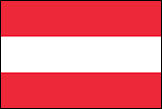
Der österreichische Pop-Sänger Michael Tschuggnall (1982 - ) stellt in Bangkok Prinzessin Sirindhorn den Song "From the East" vor. Der Song ist Prinzessin Sirindhorn gewidmet. Der Innsbrucker Chemie-Professor Bernd-Michael Rode (1946 - ), Initiator der österreichisch-thailändischen Beziehungen auf Universitätsebene, und Tschuggnall sind zu einer Privataudienz bei der Prinzessin geladen.
Künstlerlink auf Spotify:
URI: spotify:artist:0tj6k4QrLHiQ0MQDdhB9pl
URL: https://open.spotify.com/artist/0tj6k4QrLHiQ0MQDdhB9pl
Abb.: Cover der CD mit "From the East"
2004-08-05
Premiere des Films Born to Fight (เกิดมาลุย) von Phanna Rithikrai (พันนา ฤทธิไกร, 1961 - ).
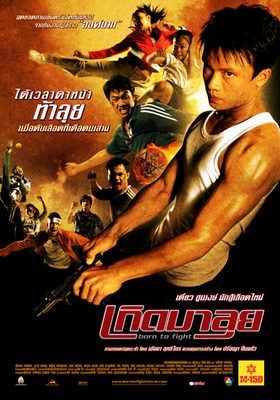
Abb.: Plakat
[Bildquelle: Wikipedia. -- Fair use]
|
Born to Fight (Thai: เกิดมาลุย) ist ein thailändischer Actionfilm aus dem Jahr 2004. Regie führte Phanna Rithikrai (พันนา ฤทธิไกร, 1961 - ). HandlungDer junge thailändische Polizist Deaw (เดี่ยว), Mitglied einer Spezialeinheit der Drogenfahndung, verliert bei einem verdeckten Einsatz, der zur Ergreifung des gesuchten Drogenkönig General Yang (นายพลหยาง) führt, seinen langjährigen Partner, Freund und direkten Vorgesetzten in einer gewaltigen Explosion. Ausgebrannt und fassungslos benötigt er Ruhe und Abstand vom Polizeialltag. Daher beschließt er seine jüngere Schwester, die sich für karitative Einrichtungen engagiert, bei einer humanitären Mission in ein kleines Bergdorf nahe der burmesischen Grenze zu begleiten. Der Konvoi mit Deaw und mehreren Spitzensportlern erreicht schließlich die abgelegene Ortschaft. Man verteilt großzügig die gespendeten Hilfsgüter und Spielsachen an die bedürftige Bevölkerung. Doch der idyllische Ausflug erweist sich bald als Trugschluss, denn ausgerechnet jenes Dorf wird von einer gut bewaffneten Gruppe Terroristen des berüchtigten Lowfei (ล่อเฟย) überfallen, um damit die Freilassung von General Yang zu erpressen, der für seine Delikte an die Vereinigten Staaten ausgeliefert werden soll. Die kaltblütigen Kämpfer gehen dabei äußerst brutal vor und richten unter den Dorfbewohnern ein wahres Massaker an, dem auch viele Frauen und Kinder zum Opfer fallen. Die übrigen Einheimischen werden interniert, darunter auch Deaws Schwester. Gleichzeitig verschanzen sich die Söldner in dem Örtchen und errichten eine Rakete mit einem nuklearen Sprengkopf, die Bangkok zerstören soll. Deaw selbst kann sich jedoch Dank mit seiner Kampfkunst zunächst den mordenden, hochgerüsteten Schergen entziehen. Es gelingt ihm einige Söldner zu eliminieren, bevor auch er gestellt und zu den anderen Geiseln gebracht wird. Da er jedoch Kenntnis von der Existenz der Atomwaffe hat, die sich irgendwo im Dorf befinden soll, versucht er die gefangenen kaum bewaffneten Dorfbewohner zu einem Aufstand zu bewegen, was auch gelingt. In der Zwischenzeit wird der freigepresste General Yang in das Bergdorf geflogen, wo ihn seine Gesinnungsgenossen, die stetigen Angriffen der Einheimischen ausgesetzt sind, freudig empfangen. Es kommt zu einer wilden, unübersichtlichen Materialschlacht mit wilden Schießeinlagen auf beiden Seiten. Letztendlich sterben die meisten Terroristen durch die Hand der anwesenden Sportler bzw. der Dorfbewohner, während der soeben freigepresste General von anrückenden Spezialeinheiten der Polizei wieder umstellt und verhaftet wird. Die Atomwaffe wird dennoch gezündet, erreicht jedoch nicht die thailändische Hauptstadt und versinkt ohne größere Schäden im angrenzenden Ozean. Am Ende des Films wird das idyllische Dorf von einer Sprengladung stark beschädigt, dennoch können sich unzählige Einheimische in Sicherheit bringen. Sämtliche Kampfhandlungen werden eingestellt. Alle Angreifer werden getötet oder befinden sich in polizeilichem Gewahrsam. In einer der letzten Szenen verabschieden die dankbaren Dorfbewohner den Hilfskonvoi mit den ehrenamtlichen Helfern, der sich mit Deaw und seiner Schwester auf die Heimreise macht. Besetzung
„Inszenatorisch ermüdende, billig produzierte Baller-Orgie, die ihre wenigen Actionschauwerte in einem Wust martialischer Gewalt erstickt.“ – Lexikon des Internationalen Films [1] [Quelle: http://de.wikipedia.org/wiki/Born_to_Fight_%282004%29. -- Zugriff am 2013-03-21] |
2004-08-12

72. Geburtstag der Königin (72 = 6 x 12)
Abb.: 100-Baht-Schein zum 72. Geburtstag der Königin 2004
[Bildquelle: th.Wikipedia]
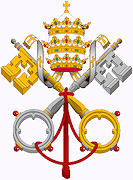
Anlässlich ihres Geburtstags zeichnet die Königin den Father Joseph (Joe) H. Maier, C.Ss. R., (1939 - ) als "the foreigner who has made the most significant contribution to the protection of the women and children of Thailand" aus.
2004-08-12
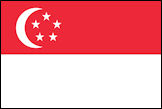
Lee Hsien Loong (李顯龍 /லீ சியன் லூங், 1952 - ) wird Ministerpräsident von Singapur. Er ist ein Sohn von Lee Kuan Yew (李光耀 / லீ குவான் இயூ, 1923 - 2015), dem Staatsgründer.
Abb.: Lage von Singapur
[Bildquelle: OpenStreetMap. -- Creative Commons Lizenz (Namensnennung, share alike)]
Abb.: Lee Hsien Loong (李顯龍) mit Gattin, 2009
[Bildquelle: Imperio Resendiz / Gobierno Federal. -- http://www.flickr.com/photos/30118979@N03/4112020611/. -- Zugriff am 2012-01-04. -- Creative Commons Lizenz (Namensnennung, keine kommerzielel Nutzung, share alike)]
2004-08-13 - 2004-08-29
Olympische Sommerspiele in Athen (Griechenland).
Abb.: ®Maskottchen
[Bildquelle: Wikipedia. -- Fair use]
Abb.: Lage von Athen (Griechenland)
[Bildquelle: OpenStreetMap. -- Creative Commons Lizenz (Namensnennung, share alike)]Thailands Medaillen:
GoldSilver
- Manus Boonjumnong (มนัส บุญจำนงค์, 1980 - ) — Boxing, Men's Light Welterweight (64 kg)
- Udomporn Polsak (อุดมพร พลศักดิ์, 1981 - ) — Weightlifting, Women's 53 kg
- Pawina Thongsuk (ปวีณา ทองสุก, 1979 - ) — Weightlifting, Women's 75 kg
Bronze
- Worapoj Petchkoom (วรพจน์ เพชรขุ้ม, 1981 - ) — Boxing, Men's Bantamweight (54 kg)
- Suriya Prasathinphimai (สุริยา ปราสาทหินพิมาย, 1980 - )— Boxing, Men's Middleweight (75 kg)
- Yaowapa Boorapolchai (เยาวภา บุรพลชัย, 1984 - ) — Taekwondo, Women's 49 kg
- Aree Wiratthaworn (อารีย์ วิรัฐถาวร, 1980 - ) — Weightlifting, Women's Under 48 kg
- Wandee Kameaim (วันดี คำเอี่ยม, 1978 - ) — Weightlifting, Women's 58 kg
Die Königin nennt die Medaillengewinner "die großartigen Acht".
2004-08-13 - 2004-09-26
Abb.: Überschwemmungen Nordostthailand 2004-08-13 - 2004-09-26
[Bildquelle: G. R. Brakenridge ; Elaine Anderson ; Sébastien Caquard. -- http://www.dartmouth.edu/~floods/2004132.html. -- Zugriff am 2012-10-24. -- Creative Commons Lizenz (Namensnennnung)]
2004-08-20
Die verschiedenen Sammlungen des Siriraj Hospital werden zum Siriraj Medical Museum zusammengefasst.
"The Siriraj Medical Museum (พิพิธภัณฑ์การแพทย์ศิริราช), nicknamed the Museum of Death, is a medical museum in Bangkok, Thailand. It is located in the Siriraj Hospital (โรงพยาบาลศิริราช) and consists of several medical museums on the site including the Forensic Medicine Museum. The museum is open to the public, and is a valuable resource for both medical professionals and laymen. Description
Located at the Siriraj Hospital, it has a large collection of important specimens related to the modern history of medicine in Thailand. The museum contains six permanent exhibits, plus a temporary exhibit. The six sections with permanent exhibits address the following fields:
- Anatomy
- Congenital disorders
- Forensic pathology
- Pathology
- Thai traditional medicine
- Toxicology
In 2008, the temporary exhibit featured the role of Siriraj Hospital faculty during the 2004 tsunami that devastated the coasts of Thailand and other countries.
Notable displaysIn the forensic medicine section of the Siriraj Medical Museum, there is on display the mummified remains of the first serial killer in the modern history of Thailand, Si Ouey Sae Urng, mistakenly romanized to "Si Quey" (the sae is the Thai signifier of a Chinese clan name, in this case Urng). Si Quey was a cannibal serial killer who preyed on children and was active in the 1950s. He was convicted and executed, then mummified and put on display as a deterrent against violent crime. There are also displays of skulls and other body parts in glass cases, many of them victims of murder by various means."
[Quelle: http://en.wikipedia.org/wiki/Siriraj_Medical_Museum. -- Zugriff am 2012-06-13]
2004-08-27
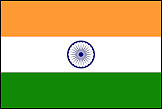
Premiere des Bollywood-Films Dhoom (धूम). Den Titelsong Dhoom Dhoom singt die Thai Sängerin Tata Young (ทาทา ยัง = Amita Marie Young - อมิตา มารี ยัง, 1980 - )
Abb.: VCD-Hülle
[Fair use]
""Dhoom Dhoom" is the title track and single sung by the pop singer, Tata Young (ทาทา ยัง, 1980 - ) for the 2004 film and album, Dhoom (धूम). Dhoom was released in August 2004 and won several awards and took on international fame. It quickly soared high on the billboards top in 2004 to 2005. Chart performance
The song was the singer's most successful single ever in India. It was a major hit, reaching #1 for several weeks to months in many Asian countries music charts. It was number one in various countries such as India, Thailand, Singapore, Malaysia, Indonesia and other Southeast Asian countries. Starting from August 2004 to as far as late as 2005.
Tata Young received the MTV Immies: Indian Music Excellence and the popular music awards in India for this song. She later went on tour for Dhoom Dhoom around the world. The song later appears on Best of Tata Young, a compilation album in tribute for her greatest hits.
EPThe success of "Dhoom Dhoom" paved the way for the release of the "Dhoom Dhoom EP" (2005).
Music videoThe music video first appeared in the movie Dhoom. It shows Tata Young singing and appearances of several Bollywood actors from the film, Abhishek Bachchan (अभिषेक बच्चन, 1976 - ), John Abraham (ജോൺ എബ്രഹാം, 1972 - ), and Uday Chopra (उदय चोप्रा, 1973 - ).
It shows various clips from the movie, mostly stunts, mixed into the video towards the beginning. At first she is seen dancing. Tata Young is later seen with Abhishek Bachchan and the two sit together in a hot tub surrounded by thousands of lit candles. Next she is in an S and M-styled scene, whip in hand, with a tied up Uday Chopra. Finally, John Abraham and Tata Young are playfully fighting in a large pool of mud.
The making of the music video, "Dhoom Dhoom", appeared on MTV India and was hosted by Tata Young and Arjun Sablok.
Alleged plagiarismCanadian songwriter Jesse Cook (1964 - ) accused Pritam (প্রিতম চক্রবর্তী - Pritam Chakraborty, 1971) of copying his song "Mario Takes a Walk" (from his album Gravity) for "Dhoom Dhoom". Cook commented in an interview that he loves Pritam's version and that "there’s no reason to steal when I would be happy to share"."
[Quelle: https://en.wikipedia.org/wiki/Dhoom_Dhoom. -- Zugriff am 2016-01-25]
2004-08-29

Apirak Kosayodhin (อภิรักษ์ โกษะโยธิน, 1961 - ), Kandidat der Democrat Party (พรรคประชาธิปัตย์), wird mit 39% der Stimmen zum Bürgermeister von Bangkok (ผู้ว่าราชการกรุงเทพมหานคร) gewählt.
Abb.: Apirak Kosayodhin (อภิรักษ์ โกษะโยธิน)
[Bildquelle: Nogia123 / Wikipedia. -- GNU( FDLicense]
"Apirak Kosayodhin (Thai: อภิรักษ์ โกษะโยธิน, born March 30, 1961) is a former Thai business executive and former governor of Bangkok. In the gubernatorial elections on August 29, 2004 he won 40% of the votes. He was re-elected on October 6, 2008, in the gubernatorial elections with 45% of the vote but decided to resign a month later after being indicted on charges of corruption. Born in Nonthaburi (นนทบุรี) in a Thai Chinese family, he studied at Triam Udom Suksa School (โรงเรียนเตรียมอุดมศึกษา) and Chiang Mai University (มหาวิทยาลัยเชียงใหม่), where he received a Bachelor Degree in Food Science and Technology in 1983. Beginning his professional career at the Thai branch of Pizza Hut, he worked at several companies as manager and director. 2002–2004 he was among other posts CEO of TA Orange (currently known as True Move - ทรู) and member of the Board of Directors of the Stock Exchange of Thailand (ตลาดหลักทรัพย์แห่งประเทศไทย).
Governor of BangkokIn 2004 the Democrat Party (พรรคประชาธิปัตย์) nominated him as their candidate for the Bangkok governor election, which he won gaining 40% of all votes. Paveena Hongsakul, an independent candidate with the unofficial support of the ruling Thai Rak Thai party (พรรคไทยรักไทย), came in second-place with 16% of the vote.
Critics have noted the lack of tangible impact Apirak had in his role as city governor. Some policies, for instance "smart" traffic signs and bus stops flopped and his Bus Rapid Transit (BRT, รถโดยสารประจำทางด่วนพิเศษในเขตกรุงเทพมหานครและปริมณฑล) project has yet to come into service. However, he was much lauded for being able to push the extension of BTS Skytrain (รถไฟฟ้าบีทีเอส) routes, which are currently under-construction. Another notable project Apirak has been successful in implementing is the Bangkok Art and Culture Centre (หอศิลปวัฒนธรรมแห่งกรุงเทพมหานคร) at Pathumwan (ปทุมวัน) intersection which opened in 2008.
After two years in office, poll respondents gave him high marks for diligence and dedication to work. But he received the lowest marks for seeing projects through to completion. His traffic and transport initiatives also received flunking marks. Overall, 57% of Bangkokians felt he had met expectations.
Apirak's so-called smart taxi stops were met with derision. The 150 stops were in operation since October 2005 looked like bus stops. When people are waiting in one a red light becomes visible to nearby cabs. If no taxis are passing would-be passengers can press a button and a call centre directs cabs to the stand. A BMA study found that the stops had a success rate of a mere 38.6%. Although 189,549 smart taxis had been hailed, just 73,168 of them reported picking up passengers, the study found. Numerous stops went totally unused. However, Apirak's smart traffic signs have been a mild success giving motorists more information with regards to the traffic conditions ahead and has been mild relief from the stress of traffic.
The military junta's Assets Examination Committee (AEC) did not charge Apirak over the controversial purchase of fire-fighting equipment for the city. Sithichok Rawdkrutha, an AEC member, lodged a complaint with AEC Chairman Nam Yimyaem over the decision and noted that he suspected Apirak of dereliction of duty or malfeasance for giving the nod to the purchase, for which he allegedly received 500 million baht in kickbacks. Apirak has protested his innocence by pointing to the fact that the deal was originally signed by the former Bangkok governor Samak Sundaravej (สมัคร สุนทรเวช). Apirak claims to have been forced by the ex-governor's agreement to continue the project.
Re-electionDespite the hanging allegations Apirak won re-election on the October 5, 2008 with 45% of the vote or 991,018 of the votes cast.
ResignationOn the November 11, 2008 the National Counter Corruption Commission announced that Apirak was indicted together with other officials including former Governor and Prime Minister Samak (สมัคร สุนทรเวช). On the 13 Apirak announced in front of television cameras his resignation saying: "Like the Democrat Party, I support a move that will perpetuate politics-for-people," he continued "I have complete confidence in my innocence. I am ready to see my case go through the judicial system. I am confident that I will receive justice in the end,". Abhisit Vejjajiva (อภิสิทธิ์ เวชชาชีวะ) Leader of the Democrat party was quoted saying: "Apirak's decision set a standard many people want to see in Thai politics. It's praiseworthy and he deserves moral support from society." His resignation immediately set out a by-election for the next governor. Currently he is a close adviser to PM Abhisit Vejjajiva."
[Quelle: http://en.wikipedia.org/wiki/Apirak_Kosayodhin. -- Zugriff am 2012-01-03]
2004-09

Inkrafttreten des Freihandelsabkommens zwischen Thailand und Indien.
Abb.: Indien
[Bildquelle: OpenStreetMap. -- Creative Commons Lizenz (Namensnennung, share alike)]
2004-09

Die Anzahl der Männer des Volunteer Defence Corps (Or Sor) (อส. = กองอาสารักษาดินแดน), die die Flüchtlingslager an der Grenze zu Myanmar bewachen, wird von 133 auf 470 erhöht. Alle Lager werden mit festen Stacheldrahtzäunen umgeben.
Abb.: Flüchtlingslager an der Grenze zu Myanmar, 2006
[Bildquelle: Julien Zwang, Shoklo Malaria Research Unit, Mae Sot, Tak Province, Thailand. -- http://demoplanet.free.fr/karen_refugee_camps.htm. -- Zugriff am 2012-10-01. -- Fair use]
2004-09-06
Start der Online-Tageszeitung Prachtai (ประชาไท): prachatai.com
Abb.: Chiranuch Premchaiporn (จีรนุช เปรมชัยพร)
[Bildquelle: http://www.humanrights.asia/campaigns/chiranuch-prachatai. -- Zugriff am 2012-01-06]
"Prachatai (Thai: ประชาไท, lit. Free People) is a non-profit online newspaper in Thailand. Focusing on news from and commentary on NGOs, social movements, and human rights issues, the website became an alternative source for social and political news. Its current editor-in-chief is Chuwat Rerksirisuk (ชูวัส ฤกษ์ศิริสุข), with Chiranuch Premchaiporn (จีรนุช เปรมชัยพร) serving as general manager. The site publishes mainly in Thai language, with selected articles in English. The newspaper was established in June 2004 by a group of concerned Thais who included a senior member of the Press Council of Thailand, a well-known lecturer in journalism, two members of the Thai Senate, a number of senior journalists, and a number of Thai NGO leaders. On September 6, 2004, Prachatai began daily online publication. In January 2006, it registered as a non-profit foundation, named The Foundation for Community Educational Media (มูลนิธิสื่อเพื่อการศึกษาของชุมชน).
Prachatai, together with other selected Thai independent media (Budpage, Fah Diew Kan (ฟ้าด้วยกัน), Midnight University (มหาวิทยาลัยเที่ยงคืน), Open, and Questionmark), was collectively curated as "Thai Bookazine" to participate in "the Magazines" project of Documenta 12 exhibition.[2]
In 2011, its director, Chiranuch Premchaiporn, won the "Courage in Journalism" award from International Women's Media Foundation. Chiranuch, a well-known free speech advocate, has been subject to arrest and detention based on lese majeste accusations for not removing what authorities deem offensive material quickly enough from the website. In this matter, she has received international acclaim and support."
[Quelle: http://en.wikipedia.org/wiki/Prachatai. -- Zugriff am 2012-01-06]
2004-09-09
Premiere des Films Shutter (ชัตเตอร์ กดติดวิญญาณ) von Bangjong Pisanthanakun (บรรจง ปิสัญธนะกูล) und Parkpoom Wongpoom (ภาคภูมิ วงศ์ภูมิ)
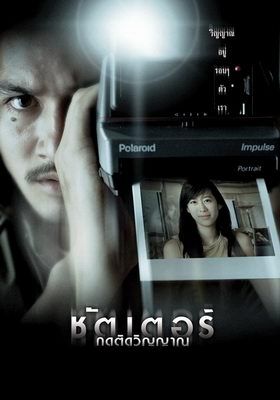
Abb.: Plakat
[Bildquelle: Wikipedia. -- Fair use]
|
"Shutter (Thai ชัตเตอร์ กดติดวิญญาณ) ist ein thailändischer Horrorfilm aus dem Jahr 2004 und das Regiedebüt von Banjong Pisanthanakun (บรรจง ปิสัญธนะกูล) und Parkpoom Wongpoom (ภาคภูมิ วงศ์ภูมิ) . 2007 entstand mit dem tamilischen Film Sivi (சிபி) ein Remake der thailändischen Filmproduktion. Ein weiterer Ableger, die US-amerikanische Produktion Shutter – Sie sehen dich des Regisseurs Masayuki Ochiai (落合正幸), wurde 2008 mit Rachael Taylor (1984 - ) und Joshua Jackson (1978 - ) in den Hauptrollen veröffentlicht. HandlungDer Fotograf Tun und seine attraktive Freundin Jane befinden sich nach einer Hochzeitsfeier, bei der auch einige von Tuns alten Studienfreunden anwesend waren, auf dem Weg nach Hause. Während ihrer Heimfahrt überfährt Jane, die von Tun kurzzeitig abgelenkt wird, eine junge Frau, bis sie selbst mit ihrem Wagen an einer Plakatwand zum Stillstand kommt. Das Unfallopfer bleibt regungslos auf der Straße liegen, und Jane will ihr zu Hilfe eilen, doch der angetrunkene Tun gerät in Panik und überredet seine Geliebte zur Fahrerflucht. Die beiden verschweigen den Vorfall, bis Tun einige Tage später während einer Auftragsarbeit die geisterhafte Anwesenheit des toten Mädchens bemerkt, die sich später auch in seltsamen Schatten und verschwommenen, bleichen Gesichtern auf seinen Positiven zeigt. Um seine Freundin Jane, die seit dem Verkehrsunfall unter Schlafstörungen leidet, und sich selbst zu beruhigen, entschließt sich das Paar, zur Unglücksstelle zurückzukehren. Hier erfahren die beiden, dass es für die Tatzeit weder eine Leiche noch ein Polizeiprotokoll über einen Autounfall gibt. Tun, der von mysteriösen Nackenschmerzen geplagt wird, und Jane stellen daraufhin Nachforschungen an, um die Visionen bzw. den Geist des Mädchens zu ergründen, dessen Wut das Paar vermeintlich zu verfolgen scheint. Als sich diese Phänomene häufen, kommt es unter Tuns Freunden zu einer Serie unerklärlicher Selbstmorde, die alle im Zusammenhang mit dem jungen Mädchen stehen, die Jane als „Natre“ identifiziert. Natre, die eine geheime Liebesbeziehung zu Tun unterhielt und die Trennung nicht richtig verarbeitete, studierte in Bangkok an der gleichen Universität wie Tun, galt jedoch als Außenseiterin. Um mehr über sie zu erfahren, besucht das Paar das Elternhaus von Natre abseits von Bangkok, findet jedoch nur noch ihren leblosen Körper vor, der sich bereits im fortgeschrittenen Stadium der Verwesung befindet. Von der sichtlich mitgenommenen Mutter erfahren sie noch, dass ihre Tochter einst völlig verändert von Bangkok heimkehrte und später Suizid beging. Aufgrund der psychischen Instabilität der Mutter kam es jedoch nie zu einer Bestattung. In dem Glauben, diese könne die unheimlichen Ereignisse beenden, sorgen Jane und Tun dafür, dass eine Feuerbestattung in die Wege geleitet wird. Nach der Feuerbestattung findet Jane beim Stöbern in Tuns Apartment einige versteckte Negativfilme, die die Misshandlung und Vergewaltigung Natres durch Tuns Freunde dokumentieren - jene Freunde, die bereits Suizid begangen haben. Tun enttarnen sie gleichzeitig als Lügner, der seiner Ex-Geliebten Natre nicht zu Hilfe kam. Es stellt sich sogar heraus, dass er der Schöpfer der Fotos ist. Jane trennt sich daraufhin von Tun, der nun völlig vereinsamt seinen Wohnbereich fotografiert – auf der Suche nach seinem Geist. Auf einer Polaroid-Aufnahme entdeckt er am Ende des Films den auf seinen Schultern sitzenden und die Nackenschmerzen verursachenden Geist Natres, stürzt dabei aus dem Fenster seiner Wohnung und findet sich schwer verletzt im Krankenhaus wieder. In der letzten Einstellung des Films besucht Jane den entstellten Tun, auf dem noch immer (s)ein Schatten lastet. Besetzung
´[Quelle: http://de.wikipedia.org/wiki/Shutter_%28Film%29. -- Zugriff am 2013-03-21] |
2004-09-12
In Südthailand stationierte Soldaten stehen Schlange, um im Wat Sathit Chonlatan, Amphoe Nong Chik (หนองจิก), Provinz Pattani (ปัตตานี), vom Abt tätowiert zu werden. Ein Soldat mit solchen Tätowierungen soll mehrfach angeschossen worden und dabei unverletzt geblieben sein. Seither wollen viele Soldaten im Kampf gegen südthailändische Terroristen und Banditen unverletzbar sein.
Abb.: Dort werden Soldaten unverwundbar gemacht: Amphoe Nong Chik (หนองจิก)
[Bildquelle: OpenStreetMap. -- Creative Commons Lizenz (Namensnennung, share alike)]
2004-09-18

US-Präsident George W. Bush löscht Thailand von der Liste der Länder, die signifikant am Drogenhandel beteiligt sind.
Abb.: Präsident George W. Bush
[Bildquelle: DonkeyHotey. -- http://www.flickr.com/photos/donkeyhotey/7210988114/. -- Zugriff am 2012-09-20. -- Creative Commons Lizenz (Namensnennung, share alike)]
2004-09-19/30
Abb.: Überschwemmungen Nordthailand 2004-09-19/30
[Bildquelle: G. R. Brakenridge ; Elaine Anderson ; Sébastien Caquard. -- http://www.dartmouth.edu/~floods/2004132.html. -- Zugriff am 2012-10-24. -- Creative Commons Lizenz (Namensnennnung)]
2004-09-24 - 2006-05-26

Porter J. Goss (1938 - ) ist Direktor des CIA.
Abb.: Porter J. Goss
[Bildquelle: Wikipedia. -- Public domain]
2004-09-26
Bombenanschlag bei einem Jahrmarkt in Yala (ยะลา). Sieben Volunteer Defence Corps (Or Sor) (อส. = กองอาสารักษาดินแดน) und zwei Thahan Phran (ทหารพราน, Rangers) werden verletzt. Der Anschlag galt den Thahan Phran.
Abb.: Lage von Yala (ยะลา)
[Bildquelle: OpenStreetMap. -- Creative Commons Lizenz (Namensnennung, share alike)]
2004-09-27
Bangkok Post über den Glauben, dass die Verzögerungen beim Bau des Suvarnabhumi-Flughafens (ท่าอากาศยานสุวรรณภูมิ) "stem not from man-made errors but supernatural phenomena": der Schrein für alle Gottheiten des Grundstücks sei zu klein:
"A Thai-style pavilion was also built to house a foundation stone laid at the site by His Majesty the King. Before, the foundation stone was stored in a poorly illuminated place, which some believed was unbefitting, and might also have caused troubles. It has now been placed in a brightly lit place. Mr. Srisook [Srisook Chandrangsu - ศรีสุข จันทรางศุ, 1944 - 2014, Staatsekretär für Verkehr]said he was confronted with countless problems when he was asked to supervise the project. But after he placed a Buddha image in a meeting room...many of the problems and arguments were peacefully resolved. ‘We have to believe that supernatural powers are real,’ said Mr. Srisook."
2004-10-01 - 2005-09-30
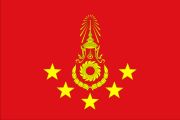
General Prawit Wongsuwan (พลเอก ประวิตร วงษ์สุวรรณ, 1945 - ) ist Commander-in-Chief of the Royal Thai Army (ผู้บัญชาการทหารบก).
Abb.: Prawit Wongsuwan (พลเอก ประวิตร วงษ์สุวรรณ)
[Bildquelle: th.Wikipedia. -- Public domain]
2004-10-05
In Phang Phuay (แพงพวย) in der Provinz Ratchaburi (ราชบุรี ) wird ein 10jähriges Mädchen als Opfer an den Hindu-Gott Indra (พระอินทร์) von ihrer Mutter und drei Tanten geschlachtet. Die Frauen behaupten, das Mädchen habe über das Dorf Unglück gebracht.
Abb.: Lage von Phang Phuay (แพงพวย)
[Bildquelle: OpenStreetMap. -- Creative Commons Lizenz (Namensnennung, share alike)]
Abb.: Indra (พระอินทร์), Wat Suthat (วัดสุทัศนเทพวราราม), Bangkok
[Bildquelle: มัทนา / Wikipedia. -- Public domain]
2004-10-07
Premiere des Films Bangkok Loco (ทวารยังหวานอยู่) von Pornchai Hongrattanaporn (พรชัย หงษ์รัตนาภรณ์)
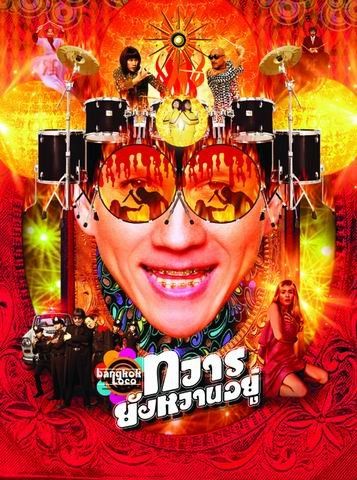
Abb.: Plakat
[Bildquelle: Wikipedia. -- Fair use]
|
"Bangkok Loco (Thai: ทวารยังหวานอยู่, RTGS: Thawan yang wan yu) is a 2004 Thai comedy-musical-fantasy film directed by Pornchai Hongrattanaporn (พรชัย หงษ์รัตนาภรณ์), written by Sompope Vejchapipat (สมภพ เวชชพิพัฒน์) and starring Krissada Terrence (กฤษดา เทอเรนซ์, 1970 - ) . The story involves a gifted young rock drummer named Bay (เบ๊) who commits a grisly murder and becomes a fugitive from the law. Trained by a monk in a style of drumming called the Drums of the Gods, which treats drumming as a martial art for the forces of good, he must face his opposite drummer from the dark side. The story is set in the 1970s and in a Forrest Gump (1994) fashion, the protagonist Bay is seen having an influence on present-day Thai popular culture. Internationally, the movie has gained a cult following because of its fantastically stylized and colorful production design and pop-culture references. The film was chosen for the "Midnight Madness" program at the 2005 Toronto International Film Festival. PlotBay (เบ๊) is a talented young rock drummer in Thailand in the 1970s. One day, he is practicing on his drum set in his apartment and is in a trance, but he suddenly notices that everything is covered in blood and that his drumsticks are actually knives. Apparently, he has killed his landlady, Mrs. Victoria เจ๊วิค). Panicked, he runs out his door, through the streets and alleys to his friend, Ton (ต้น), who is also a drummer and is in a band called The PC with Meow (เหมียว) and Ooh (อู๋). Despite Bay's circuitous flight to Ton's apartment, she only lives next door to him. Ton is a long-time childhood friend of Bay, as the two were classmates at Buddhist temple where they were instructed by an old monk in the Drums of the Gods. Meanwhile, the police have arrived at Bay's apartment, led by Inspector Black Ears (ไอ้หูดำ). The inspector has a habit of trying to kick in doors that open to the outside. Whenever the inspector yells "Damn!" (Batsop! in Thai), a man named Sombat (สมบัติ) appears and leans his head on the inspector's shoulder (sop means to lean on shoulder). The inspector also has a smart dog named Dumbass to sniff for clues. Through his drumming, Bay is able to convince Meow and Ooh that he is innocent. Had he actually killed Mrs. Victoria, Bay would have broken one of the Buddhist precepts and his Drums of the Gods skills would no longer be effective. So they all go on the run and hide out from the cops. Bay and The PC make their way to a village fair, where The PC has been booked to play. Meow and Ooh sit around and make Bay do all the work to set up the stage. When he's finished, they plan to call the cops on him anyway. Soon the cops do show up and a chase around the village fair ensues, with the inspector pursuing Bay on the various carnival rides. Just as it looks like Bay will escape, the inspector is given a rifle and proves that he is an expert marksman. Bay, however, manages to catch one of the bullets with his drumsticks, but another finds its mark in Bay's shoulder. Bay ends up getting away and finds himself on a dam overlooking a reservoir. On the dam, he meets a man who is going to commit suicide, but Bay talks him out of it. Bay is then picked up by a passing truck and makes his escape just as the inspector and his men have caught up. The inspector witnesses the drowning of his dog Dumbass and also meets a polite boy in a red shirt (meant to resemble tennis pro Paradorn Srichaphan - ภราดร ศรีชาพันธุ์, 1979 - ). Bay has been picked up by a truck hauling films to the village fair, and so he joins the film company and works as a dubber on the film. His performance is a hit, causing the audience to laugh their heads off. Afterward, Bay gives the man, who looks like Prime Minister Thaksin Shinawatra (ทักษิณ ชินวัตร, 1949 - ) an idea to start a new political party called Thais Love Thais (พรรคไทยรักไทย). Bay is eventually caught and jailed. However, Ton and The PC are in jail, too. After Bay sings a sad song that makes everyone cry, Meow and Ooh decide to help Bay escape. They are able to rig up an explosion and Bay runs away with Ton. She sees that Bay is under stress and guesses it must be because of the upcoming battle of the Drums of the Gods vs the Devil's Drums. Bay's and Ton's teacher, Professor Tuengpo (อาจารย์ตึ่งโป๊ะ), faced the dark side drummer Ringo Starr (1940 - ) in the last competition 10 years ago. He defeated Ringo but also died in the aftermath of the duel, before he could reveal to Bay and Don the secret of the crucial 10th level of the Drums of the Gods. In order to overcome the forces of evil, Bay or Ton must somehow achieve the elusive 10th level, and neither of them feel they are ready. Thinking perhaps that sex will help them achieve the level, they check into a shabby guesthouse and hole up in a room. While in the guesthouse, which is very dirty, Bay complains to the owner, Mr. Chuwit (เจ๊วิค), and tells him that the rooms should all have bathtubs so guests can clean up. This apparently gives Chuwit the idea to start a chain of massage parlors, all with bathtubs in the massage rooms. The police again catch up with Bay who is knocked unconscious. When he comes to, the medical examiner tells him that the body of the person Bay is suspected of killing is not Mrs. Victoria, but the police won't consider the evidence. However, the ME lets Bay leave the room. Bay finds the drumming duel and sees that it is Ton who will face the new Devil's Drums master, who is named Mr. Davis. Bay then realizes that the secret to the 10th level of drumming was the double-sexed technique, which means his penis was cut off and attached to Ton, giving her the power. There is a climactic drumming duel in a boxing ring, in which all styles of drumming are explored, and the result is that the Drums of the Gods are victorious. Cast
[Quelle: http://en.wikipedia.org/wiki/Bangkok_Loco, -- Zugriff am 2013-03-21] |
2004-10-07
Premiere des Films Sai Lor Fah (สายล่อฟ้า) von Yuthlert Sippapak (ยุทธเลิศ สิปปภาค, 1966 - )
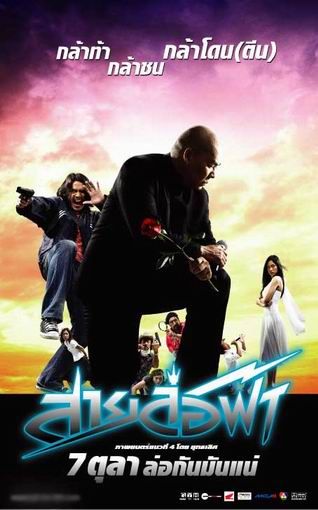
Abb.: Plakat
[Bildquelle: Wikipedia. -- Fair use]
|
"Sai Lor Fah (Thai: สายล่อฟ้า or Pattaya Maniac) is a 2004 Thai crime-comedy written and directed by Yuthlert Sippapak (ยุทธเลิศ สิปปภาค, 1966 - ). Filmed on location in Pattaya (พัทยา),[1] it is the story of friends who become mixed up in an escalating series of crimes. PlotTun (ตุ่น) and Tao (เต่า) are friends who enjoy spending time together in karaoke bars in Pattaya. Tao has the bad habit, however, of always singing a loud, off-key rendition of the Asanee-Wasan (อัสนี-วสันต์ โชติกุล) song "Sai Lor Fah" (สายล่อฟ้า - "Lighting Rod"), which always results in Tao and his friends being thrown out of the club. Tao is dealer of counterfeit DVDs, but his real vocation is gambling and he frequently bets on Premier League soccer. He finally wins some money and decides to pay back a 100,000 baht loan from Tun and also treat Tun to a big night out at the city's finest karaoke club. At the club, the shy, portly Tun meets a young woman, Nok (นก), shares a duet with her, and ends up taking her back to his house. The next morning, Nok disappears. It turns out she is the mistress of Mee (หมี), a local crime kingpin, and Tao paid her for a one-time deal to sleep with his friend. Tun, a dealer in rare Buddhist amulets, becomes obsessed with finding Nok. He gives the 100,000 baht he received from Tun to a transvestite pimp who might have a lead on Nok. Tun, meanwhile, is involved with crimes of his own, and has become beholden to Mee and a rival kingpin, Moo (หนู), who are both interested in obtaining a rare amulet that Tao has in his possession. In a complicated scheme, Tao ends up perpetuating the kidnapping of a wealthy American man's daughter, and holding her for 3 million baht ransom. Also, a shadowy female assassin has entered the picture to complicate matters. Cast
[Quelle: http://en.wikipedia.org/wiki/Sai_Lor_Fah. -- Zugriff am 2013-03-21] |
2004-10-17
Ministerpräsident Thaksin beginnt die Wahlkampagne für die Thai Rak Thai Party (พรรคไทยรักไทย). Er verspricht eine Politik für die Armen:
"Poverty eradication caravans" werden das Land durchstreifen, um den Graben zwischen Reich und Arm zu überbrücken
Arbeitslose erhalten Berufsausbildung
arme Studierende erhalten Stipendien
Bauern erhalten günstige Kredite
Landlose erhalten Landbesitz
30-Baht-Krankenversicherung für alle
Das Geld für diese Maßnahmen sollen u.a. kommen von erhöhten Steuern auf Zigaretten, Alkohol und andere Laster.
Abb.: ®Logo
[Bildquelle: th.Wikipedia]
2004-10-19

Die Militärjunta Myanmars setzt den Ministerpräsidenten General Khin Nyunt (ခင်ညွန့်, 1939 -) wegen Korruptionsverdachts ab und stellt ihn unter Hausarrest. Nachfolger wird General Soe Win (စိုးဝင်း, 1947 - 2007).
Abb.: General Soe Win (စိုးဝင်း) (links) und General Khin Nyunt (ခင်ညွန့်), 2004-10-21
[Bildquelle: Edward Win / Wikipedia. -- Public domain]
2004-10-20

General Susilo Bambang Yudhoyono (1949 - ) wird Präsident von Indonesien.
Abb.: Susilo Bambang Yudhoyono
[Bildquelle: DonkeyHotey. -- http://www.flickr.com/photos/donkeyhotey/5671430774/. -- Zugriff am 2012-01-04. -- Creative Commons Lizenz (Namensnennung, share alike)]
2004-10-25
Beim Abtransport von durch die Armee festgenommenen Muslimen ersticken 78 Personen. Die Armee erschießt weitere 7 Muslime in Tak Bai (ตากใบ), Provinz Narathiwat (นราธิวาส). An den Aktionen sind auch Border Patrol Police (ตำรวจตระเวนชายแดน) und Volunteer Defence Corps (Or Sor) (อส. = กองอาสารักษาดินแดน) beteiligt.
Abb.: Lage von Tak Bai (ตากใบ)
[Bildquelle: OpenStreetMap. -- Creative Commons Lizenz (Namensnennung, share alike)]
"The Tak Bai incident (กรณีตากใบ / Peristiwa berdarah Tak Bai) is an event that occurred on October 25, 2004 in Tak Bai (ตากใบ), Thailand, which resulted in at least 85 deaths.
Six local men were arrested. A demonstration was organized to demand their release and the police called in army reinforcements. After some demonstrators threw rocks and attempted to storm the police station, security forces used tear gas and gunfire in response.
Hundreds of local people, mostly young men, were arrested. They had their shirts taken off, bound with their hands tied behind their backs, and made to lie face down on the ground. Video footage shows soldiers kicking and beating those already bound and helplessly lying on the ground.
Later that afternoon, those arrested were thrown by soldiers into trucks to be taken to an army camp in the next province of Pattani (ปัตตานี). The prisoners were stacked five or six deep in the trucks, and by the time the trucks reached their destination three hours later, many had suffocated to death.
Reports claim that 7 died as a result of gunshot wounds. The rest are believed to have died either from suffocation or beatings.
This incident sparked widespread protests across Thailand. Video CDs were made by Muslim groups showing footage of the events as well as some speeches. These Video CDs were circulated among Muslims in Thailand. The government said that it was illegal to own copies of the Video CDs and said it could prosecute anybody who has a copy.
Shortly after the incident, PM Thaksin Shinawatra's (ทักษิณ ชินวัตร) first response defended the army's actions and said the men died "because they were already weak from fasting during the month of Ramadan."
As of January 1, 2006, no members of the security forces responsible were brought to justice.
Prime Minister Surayud Chulanont (สุรยุทธ์ จุลานนท์) gave a formal apology for the incident on 2 November 2006."
[Quelle: http://en.wikipedia.org/wiki/Tak_Bai_Incident. -- Zugriff am 2012-01-03]
2007-10-26/27

Berlin: Workshop der Heinrich Böll Stiftung: Towards good society : civil society actors, the state, and the business class in Southeast Asia - facilitators of or impediments to a strong, democratic, and fair society?
Es spricht u. a.
Kasian Tejapira [เกษียร เตชะพีระ] <1957 - >: Reform and counter-reform : democratization and its discontents in post-May 1992 Thai politics
Dokumentation.
Towards good society : civil society actors, the state, and the business class in Southeast Asia - facilitators of or impediments to a strong, democratic, and fair society? : documentation of a workshop of the Heinrich Böll Foundation, held October 26 - 27, 2004, in Berlin / ed. by the Heinrich Böll Foundation. -- Berlin : Heinrich Böll Foundation, 2005. -- 251 S. ; 21 cm. -- ISBN 3-927760-49-8. -- S. 125 - 150
Abb.: Einbandtitel
2007-10-27

Massenschlägerei zwischen Hunderten Muslimen und Karen (ကရင်လူမျိုး /กะเหรี่ยง) im Flüchtlingslager Mae La, Amphoe Tha Song Yang (ท่าสองยาง), Provinz Thak (ตาก). Armee und Volunteer Defence Corps (Or Sor) (อส. = กองอาสารักษาดินแดน) schlagen die Schlägerei nieder.
Abb.: Lage von Mae La
[Bildquelle: OpenStreetMap. -- Creative Commons Lizenz (Namensnennung, share alike)]
"Mae La (Maela) is a refugee camp in Thailand. It was established in 1984 in Tha Song Yang District (ท่าสองยาง), Tak Province (ตาก) in the Dawna Range (ทิวเขาดอยมอนกุจู) area and currently houses 50,000 refugees[1], with more arriving each week from Burma. Mae La Camp is the largest Burmese refugee camp. Over 90% are ethnic Karen (ကရင်လူမျိုး /กะเหรี่ยง).[2] The camp was originally established following the fall of the KNU (Karen National Union - ကရင် အမျိုးသား အစည်းအရုံး) base at the Thai village of Mae La on the border in 1984 with a population of 1,100. Shortly afterwards, due to security concerns, it was moved to the site where Zone C currently lies. After the fall of Manerplaw in January 1995, a number of camps were attacked in cross-border raids and the Thai authorities began to consolidate camps to improve security; Mae La was designated as the main consolidation camp in the area.
In April 1995, Mae La increased in size from 6,969 to 13,195 due to the closure of five camps to the north – Mae Ta Waw, Mae Salit, Mae Plu So, Kler Kho and Kamaw Lay Kho – and the move of Huay Heng later in October of the same year. Over the following year, the camp doubled in size again to 26,629 as those lost in the move came back into the camp.
In March 1997, some people were relocated here following the closure of Huai Bone camp (aka Don Pa Kiang) and again in February 1998 when Shoklo camp was closed.
Mae La is considered as a centre of studies for refugees, so the current population includes several thousand students who come to study in the camp (some from other camps but mostly from Burma). They are registered only as temporary inhabitants.
The camp was attacked in 1997 by DKBA (Democratic Karen Buddhist Army - တိုးတက်သော ဗုဒ္ဓဘာသာ ကရင်အမျိုးသား တပ်ဖွဲ့) troops with support from Burma Army units. There have been no incursions since then, but a mortar shell landed in Section A5 in March 1998. Every dry season, this area is quite tense with concerns relating to camp security – threats of armed attack and/or attempts to burn the camp.
The area of Karen State (ကရင်ပြည်နယ်,) lying opposite Mae La camp is very rural with no large settlements or infrastructure. The Karen National Liberation Army (KNLA, ကရင်အမျိုးသား လွတ်မြောက်ရေး တပ်မတော်) maintains its 7th Brigade Headquarters nearby, and there are several Burma Army and Democratic Karen Buddhist Army outposts in the area (the DKBA is a faction of the KNLA which split off and aligned itself with the Burma Army in 1994).[3]"
[Quelle: http://en.wikipedia.org/wiki/Mae_La_refugee_camp. -- Zugriff am 2012-10-01]
2004-10-29
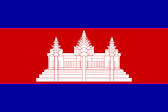
Norodom Sihamoni (នរោត្តម សីហមុនី, 1953 - ) wird zum König von Kambodscha geweiht.
Abb.: König Norodom Sihamoni (ព្រះបាទសម្ដេចព្រះបរមនាថ នរោត្ដម សីហមុនី), 2008
[Bildquelle: Jeffdkennel / Wikipedia. -- GNU FDLicense]
2004-11-02

US-Präsident Georg W. Bush wird wiedergewählt.
Abb.: George W. Bush
[Bildquelle: DonkeyHotey. -- http://www.flickr.com/photos/donkeyhotey/4394161360/. -- Zugriff am 2012-01-04. -- Creative Commons Lizenz (Namensnennung)]
2004-11-07
Erstausstrahlung des buddhistischen Fernsehsenders DMC (ดีเอ็มซี, Dhamma Media Channel) von Wat Phra Dhammakaya (วัดพระธรรมกาย).
Abb.: ®Logo
[Bildquelle: Wikipedia]
"DMC.TV is a Thai cable television channel concerned with Buddhism. Its main taglines are "the secrets of life revealed" and "the only one channel" (sic). The channel is owned by the Dhamma Education for Environment Foundation. DMC stands for the Dhamma Media Channel. It uses content from real life, and advertises itself as being suitable for people of all ages and religious persuasions. It broadcasts songs, documentaries, and cartoons 24 hours a day.
The channel frequently discusses the "Eternal Questions", such as the meaning of life, afterlife destinations, whether life is predestined, whether heaven and hell exist, how the Law of Karma works and the existence of black magic and the supernatural. The dangers of drugs and alcohol are often mentioned.
RecognitionIn July 2007 DMC.TV was awarded twelve Telly Awards for the following programmes: Dasa Jata Jataka (Religion/Spirituality & Edutainment awards), No Tobacco No Alcohol (Social Issues, Health & Wellness, Motivation and Religion/Spirituality awards), The Fifth Major Hell (Use of Animation and Religion/Spirituality awards), The Song of Lord Buddha (Edutainment award), Inner Dream Kindergarten (Religion/Spirituality and Children's audience award) and Case Study: The Law of Karma (Religion/Spirituality award)."
[Quelle: http://en.wikipedia.org/wiki/DMC.TV. -- Zugriff am 2012-01-03]
2004-11-19

Angesichts der Vorgänge in den muslimischen Südprovinzen ruft die Königin in einer Fernsehansprache dazu auf, Frauen und Kinder im Gebrauch von Feuerwaffen zu unterweisen, damit sie sich selbst gegen die Terroristen schützen können. Sie, die Königin, selbst sei bereit trotz ihrer schlechten Augen, schießen zu lernen.
2004-11-25
Ende der Parlamentssession. Es ist das erste Mal in der ganzen Geschichte Thailands, dass ein Parlament (สภาผู้แทนราษฎร) die volle Legislaturperiode (vier Jahre) durchgehalten hat!
2004-11-25

Das Parlament von Malaysia verurteilt "the aggresive use of power in Narathiwat province [นราธิวาส] that led to numerous deaths among Muslims."
2004-11-25


Financial Times <London> zitiert Zainuddin Abdullah, einen Aktivisten der Parti Islam Se-Malaysia (PAS):
"It is time for Pattani [ปัตตานี / ڤتنا] to fight the Siamese kafirs [Ungläubige / كافر]. We will stand by our Muslim brothers and sisters in southern Thailand to fight Siam." [Zitiert in: Abuza, Zachary: Conspiracy of silence : the insurgency in southern Thailand. -- Washington, DC : United States Institute of Peace Press, 2009. -- 293 S. ; 23 cm. -- ISBN 9781601270023. -- S. 226. -- Fair use]
2004-11-29
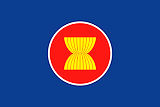

In Vientiane (ວຽງຈັນ, Laos): Unterzeichnung eines Freihandelsabkommens (ASEAN China Free Trade Agreement / เขตการค้าเสรีจีน-อาเซียน / 中国―东盟自由贸易区) zwischen den ASEAN-Staaten und der VR China. Ab 2010 soll der größte zollfreie Wirtschaftsraum der Welt entstehen, die ASEAN–China Free Trade Area (ACFTA).
Abb.: Lage von Vientiane (ວຽງຈັນ, Laos)
[Bildquelle: OpenStreetMap. -- Creative Commons Lizenz (Namensnennung, share alike)]
Abb.: ASEAN–China Free Trade Area (ACFTA)
[Bildquelle: Ichwan Palongengi / Wikipedia. -- Public domain]
"Das ASEAN-China-Freihandelsabkommen, auch China-ASEAN-Freihandelsabkommen (internationale Bezeichnung: ASEAN China Free Trade Agreement bzw. China ASEAN Free Trade Agreement, kurz auch ASEAN China FTA bzw. China ASEAN FTA), ist ein Übereinkommen zwischen der Volksrepublik China und den Mitgliedern des ostasiatischen Staatenbündnisses ASEAN zur Schaffung einer Freihandelszone. Das Abkommen trat am 1. Januar 2010 in Kraft. Nach der Bevölkerungszahl entstand die größte Freihandelszone der Welt mit über 1,8 Milliarden Bewohnern und nach der Wirtschaftskraft die drittgrößte Freihandelszone nach der Europäischen Union und der NAFTA." [Quelle: http://de.wikipedia.org/wiki/ASEAN-China-Freihandelsabkommen. -- Zugriff am 2012-01-04]
2004-1-30
The Nation:
Abb.: Lage von Thalang [ถลาง]
[Bildquelle: OpenStreetMap. -- Creative Commons Lizenz (Namensnennung, share alike)]
Abb.: Weißhandgibbon, (Hylobates lar), Kaeng Krachan National Park, Phetchaburi, Thailand, 2012
[Bildquelle: JJ Harrison / Wikimedia. -- Creative Commons Lizenz (Namensnennung)]
"A young British volunteer at the Gibbon Project [Gibbon Rehabilitation Project, Thalang - ถลาง] summoned his mate by imitating a male gibbon call, whereupon his bride (an Israeli volunteer) responded with happy monkey calls of her own, while swinging down from a treetop’ into his embrace. Having expressed the hope that aping the gibbons had brought attention to their plight, the couple then proceeded with more regular nuptials. The Director of Southern Tourism reportedly said the Tourism Authority of Thailand would consider adding this new kind of marriage ceremony to their famous underwater and cliff-climbing weddings." [Zitiert in: Hargreave, Oliver: Exploring Phuket & Phi Phi : from tin to tourism. -- Hong Kong : Within, 2008. -- 257 S. : Ill. ; 21 cm. -- ISBN 978-962-217-783-3. -- S. . -- Fair use]
2004-12

Bangkok: Premiere des russischen Balletts Katya und der Prinz von Siam (Катя и принц Сиама) durch das Kreml-Ballett (Кремлевский балет) in der Choreographie von Andrey Petrov (Андрей Борисович Петров, 1945 - ). Grußbotschaft von Präsident Wladimir Wladimirowitsch Putin (Владимир Владимирович Путин, 1952 - ).
Musik: Pavel Ovsyannikov (Павел Овсянников)
nach dem, Buch:
Hunter, Eileen ; Narisa Chakrabongse [นริศรา จักรพงษ์ (หม่อมราชวงศ์)] <1956 - >: Katya & The Prince of Siam. -- Bangkok : River Books, 1994. -- 221 S. : Ill. ; 27 cm. -- ISBN 0904568768
Über die Ehe von Chakrabongse Bhuvanath, Prinz von Phitsanulok, (จักรพงษ์ภูวนาถ, 1883 – 1920) mit der Russin Екатерина Ивановна Десницкая (1886 - 1960).
Abb.: Aus einer Aufführung in Russland 2003
[Bildquelle: я сама / ru.Wikipedia. -- Creative Commons Lizenz (Namensnennung)]
Abb.: Das Ehepaar Chakrabongse mit Sohn, 1910
[Bildquelle: ru.Wikipedia. -- Public domain]
2004-12-05
Die Regierung lässt durch die Armee 120 Millionen Origami-"Friedensvögel" über den drei südlichsten, muslimischen Provinzen Thailands abwerfen. Sie sollen ein Zeichen der Versöhnung sein. Findern von Vögel mit besonderen Markierungen winken Preise. Größere Mengen von Friedensvögeln kann man eintauschen in Gegenstände von Milch bis Fahrrädern. Der Finder des Friedensvogels mit der persönlichen Unterschrift von Ministerpräsident Thaksin erhält ein Stipendium, falls es sich um einen Studierenden handelt, oder sonst einen Arbeitsplatz.
Muslime sehen in der Friedensaktion eine Kriegserklärung gemäß Koran, Sure 105:
بِسۡمِ ٱللَّهِ ٱلرَّحۡمَٰنِ ٱلرَّحِيمِ
Im Namen Gottes, des barmherzigen Erbarmers! أَلَمۡ تَرَ كَيۡفَ فَعَلَ رَبُّكَ بِأَصۡحَٰبِ ٱلۡفِيلِ
1 Hast du nicht gesehen, wie dein Herr an den Leuten des Elefanten gehandelt hat? أَلَمۡ يَجۡعَلۡ كَيۡدَهُمۡ فِی تَضۡلِيلٍۢ
2 Hat er ihre Pläne nicht in die Irre geleitet وَأَرۡسَلَ عَلَيۡهِمۡ طَيۡرًا أَبَابِيلَ
3 und Vögelschwärme über sie gesandt, تَرۡمِيهِم بِحِجَارَةٍۢ مِّن سِجِّيلٍۢ
4 die sie mit Steinen aus Lehm bewarfen, فَجَعَلَهُمۡ كَعَصۡفٍۢ مَّأۡكُولٍ
5 und sie so abgefressenem Gras gleichgemacht?
2004-12-12
Premiere des Films "Citizen Dog" (หมานคร) von Wisit Sasanatieng (วิศิษฏ์ ศาสนเที่ยง, 1963 - )
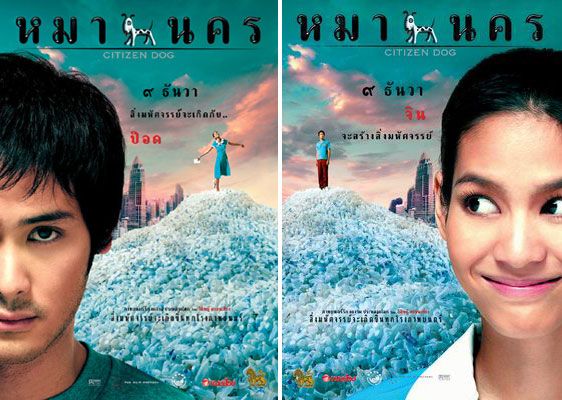
Abb.: ©Plakate
[Bildquelel: th.Wikipedia. -- Fair use]
"Citizen Dog (Thai: Mah Nakorn, หมานคร, IPA: [mǎːnákʰɔːn], RTGS: Ma Nakhon) is a 2004 Thai romance film, directed by Wisit Sasanatieng (วิศิษฏ์ ศาสนเที่ยง, 1963 - ) and based on a story by Wisit's wife, Koynuch (Siriphan Techajindawong - ศิริพรรณ เตชจินดาวงศ์, 1966 - ), which was illustrated by him. The second film by the director of Tears of the Black Tiger (ฟ้าทะลายโจร), it is a colorful story set in contemporary Bangkok, where a boy (Pod - ป๊อด) without a goal in life falls in love with a girl (Jin - จิน) who lives for her dreams. The film is frequently compared with the French movie Amélie. One of the main themes of the movie is that people will only find something from the moment when they stopped looking for it.
The movie has been distributed outside Asia by Luc Besson's EuropaCorp.
PlotPod is a country boy who moves to Bangkok, despite his grandmother's warning that he'll grow a tail. He finds a small house to live in and takes a job in a sardine cannery, getting rides to work on the back of a motorcycle taxi, the rider of which has been made a zombie after one day it rained motorcycle helmets and he wasn't wearing one.
One hot day the assembly line at the cannery malfunctions. In the confusion, Pod chops his index finger off and it ends up in a can that is trucked away to a local grocery store. He searches everyday, buying can after can of sardines. Eventually he sees a can jumping around and opens it to find a finger. He attaches it simply by pressing it into place.
But something doesn’t feel right. He must have someone else’s finger. During a lunch break, he recognises his own finger on a co-worker who’s getting ready to pick his nose. He wrests the finger away and gives the man the other finger in return. The nose-picker is named Yod, and the two become friends.
Not wishing to lose any more fingers, Pod quits the factory and becomes a security guard. On the job in an office, he meets Jin, a maid who has her nose perpetually buried in a mysterious white book written in a foreign language that she dreams of someday understanding. The book literally landed at her feet one day while she was still living in the countryside, and since then she has been trying to decipher its meaning. She has obsessive-compulsive disorder, which makes her want to constantly clean and set things in order.
Pod is smitten and wishes to be closer to Jin. Inspired by Yod and his Chinese empress girlfriend, who consummated their relationship on a crowded bus, Pod asks Jin if she would like to ride the bus. But Jin refuses, saying she breaks out in a rash whenever she takes crowded public transport. Pod quits his job as a guard and becomes a taxicab driver so he can drive her to work.
Eventually, he expresses his true feelings for Jin, but she’s become obsessed with a hippie farang (ฝรั่ง), whom she's seen reading the same white book she has. She imagines the man is named Peter and believes he is an environmental activist who was killed in a protest in Washington, D.C.. Inspired, she starts collecting plastic bottles, gathering enough to create a mountain that towers over the city, and joins an environmental protest movement calling for a ban on plastic.
Meanwhile, Pod has adventures in his taxicab, giving rides to a little girl with a foul mouth who smokes cigarettes and plays videogames. She has a teddy bear who also swears, smokes and drinks whiskey, and she eventually throws the teddy bear away. Another passenger is a man who incessantly licks things, and Pod must find a solution to make him stop. He also meets his grandmother, reincarnated as a gecko, who repeats her premonition that he'll grow a tail if he stays in the city.
Jin discovers Peter at a rally, who reveals his name is actually Andre and that the white book is an Italian gay romance novel. Crestfallen, Jin throws away the book and her activist lifestyle and leaves Bangkok, telling Pod she needs to be away from him. Pod quits as a taxi driver and returns to the country, only to grow bored as country life has literally slowed down compared to his life in Bangkok. He returns to the city to find that everyone now can and has grown a tail, except for him. He becomes a celebrity, but continues to search for Jin in vain. Pod climbs the plastic mountain and finds her there, confesses his love again and kisses her, overwhelming her doubts about their future.
Six months later, the mountain is a picnic for lovebirds, the girl and her teddy bear marry, and Jin, now running a plastic company into the ground as a successful business woman, is married to Pod and expecting a child. Through a long list of reincarnated animals, Pod believes that his child will actually be his grandmother.
CastFestivals and awards
- Mahasamut Boonyaruk (มหาสมุทร บุณยรักษ์) - Pod (ป๊อด)
- Saengthong Gate-Uthong (แสงทอง เกตุอู่ทอง) - Jin (จิน)
- Sawatwong Palakawong Na Autthaya (สวัสดิ์วงศ์ ปาลกะวงศ์ ณ อยุธยา) - Yod
- Chuck Stephens - Peter/Andre
- Raenkum Saninn (เรือนคำ แสงอินทร์) - Grandmother of Pod
- Pen-Ek Ratanaruang (เป็นเอก รัตนเรือง, 1962 - ) - Narrator
Soundtrack
- Best visual effects, 2004 Thailand National Film Association Awards (รางวัลภาพยนตร์แห่งชาติ สุพรรณหงส์ ).
- Silver Prize for Most Groundbreaking Film and Bronze Prize for Best Asian Film at the 2006 Fantasia Festival.
- shown in 2005 at the "58. International Filmfestival Locarno" (Switzerland) open air on the "Piazza Grande"
- Critics prize, 2005 Deauville Asian Film Festival
- Also screened at the 2005 Toronto International Film Festival, Vancouver International Film Festival, Pusan International Film Festival, Munich Asia Filmfest, Vienna International Film Festival, Tokyo International Film Festival, Frankfurt Asia Filmfest, London Film Festival, Thessaloniki International Film Festival, International Film Festival Rotterdam and the Taipei Film Festival.
- Sixth on the Top 10 Best Films of 2005 by Time magazine film critic Richard Corliss.[2]
No soundtrack album has been issued. The opening and closing theme is a cover of "...Before", originally performed by Thailand indie rockers Modern Dog. The song is used as a recurring motif. The soundtrack also features songs by Mahasamut Boonyaruk ((มหาสมุทร บุณยรักษ์)), who starred as Pod and is a musician in the Bangkok underground band Saliva Bastards (ซาไลว่า บาสตาร์ดส์). Director Wisit Sasanatieng also composed songs for the score.
DVDThe DVD was released in Thailand in 2005 (Region 3) and contained no English subtitles. The film was licensed for release in Hong Kong with English subtitles in 2006, and was released in early 2007 by Asia Video Publishing on an all-region disc.[3]"
[Quelle: http://en.wikipedia.org/wiki/Citizen_Dog_%28film%29. -- Zugriff am 2013-03-16]
2004-12-16
Premiere des Films SARS Wars – Tod allen Zombies! (ขุนกระบี่ ผีระบาด) von Taweewat Wantha (ทวีวัฒน์ วันทา)
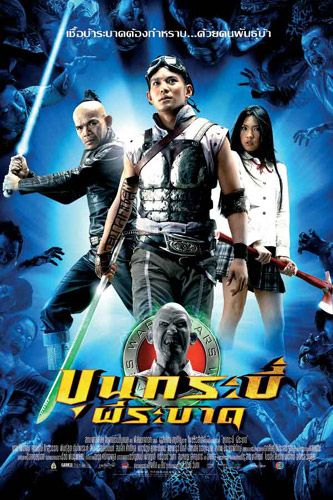
Abb.:Plakat
[Bildquelle: Wikipedia. -- Fair use]
|
"Sars War – Tod allen Zombies! (Thai: ขุนกระบี่ ผีระบาด) ist eine thailändische Splatterkomödie des Regisseurs Taweewat Wantha (ทวีวัฒน์ วันทา)aus dem Jahr 2004. Der Film kam am 16. Dezember 2004 in die thailändischen Kinos. In Deutschland erfolgte die Erstaufführung am 22. Oktober 2005 beim Asia Filmfest in München.[1] HandlungEine mutierte Erregervariante des SARS-Virus verbreitet sich epidemisch und unaufhaltbar in der ganzen Welt. Die Erkrankten verwandeln sich in lebende Tote, die die Seuche durch Bisse auf andere übertragen. Ganze Landstriche werden so entvölkert. Der gefürchtete Erreger erreicht schließlich auch Thailand, wo es alsbald zu einer Erstinfektion kommt. Der Wirt schleppt sich in ein Hochhaus, wo er zum Zombie mutiert, einer von niederen Instinkten und der Gier nach Menschenfleich getriebenen Kreatur – mit fatalen Folgen für die Anwohner. Der gleiche Gebäudekomplex beherbergt indes eine Gruppe von debilen Geiselnehmern, die dort mit ihrer jugendlichen Gefangenen, Liu (หลิว), auf Lösegeld warten. Der Vater der Entführten, ein wohlhabender Geschäftsmann mit Kontakten zur Unterwelt, ist jedoch nicht gewillt sich den Forderungen der Kidnapper zu beugen. Er bittet einen befreundeten Meister des Schwertkampfes um Hilfe. Dieser entsendet daraufhin seinen fähigsten Mann: Superhelden Khun Krabii (ขุนกระบี่). Dem Sonderling gelingt es schnell Liu zu befreien. Unglücklicherweise erlangt die Öffentlichkeit Wind vom Ausbruch des SARS-Virus, woraufhin das Hochhaus in einer strengen Quarantänemaßnahme hermetisch abgeriegelt wird. Krabii und Liu werden eingeschlossen. Fortan müssen sie sich gegen Heerscharen von Untoten erwehren. Die Behörden reagieren und entsenden eine Eingreiftruppe mit der Virenexpertin Dr. Diana (กเตอร์ ไดอาน่า). Die Wissenschaftlerin versucht die Wiedergänger mit einem neuartigen Impfstoff aufzuhalten, zunächst ohne ersichtlichen Erfolg. Irgendwann will man den Gebäudekomplex mit den blutgierigen Wesen als auch allen Einwohnern sprengen. Liu, Krabii und Dr. Diana kämpfen derweil im Inneren – unterstützt von Meister Thep (อาจาร์ยเทพลีลา) – ums nackte Überleben. Am Ende gelingt es den vier Hauptdarstellern den Wolkenkratzer unverletzt zu verlassen. Krabii, der zwischenzeitlich infiziert wurde, entdeckt zwischenzeitlich die lang ersehnte Formel für ein Immunserum. Besetzung
[Quelle: http://de.wikipedia.org/wiki/Sars_War_%E2%80%93_Tod_allen_Zombies!. -- Zugriff am 2013-03-21] |
2004-12-26
Ein Erdbeben im Indischen Ozean verursacht einen Tsunami.
Abb.: Tsunami-Welle bei Phuket (ภูเก็ต), 2004-12-26
[Bildquelle: Zalzadore. -- http://www.flickr.com/photos/zalzadore/28137251/. -- Zugriff am 2012-01-03. -- Creative Commons Lizenz (Namensnennung, keine kommerzielle Nutzung)]
Abb.: Tsunami-Welle in Phuket (ภูเก็ต), 2004-12-26
[Bildquelle: Zalzadore. --http://www.flickr.com/photos/zalzadore/28137182/. -- Zugriff am 2012-01-03. -- Creative Commons Lizenz (Namensnennung, keine kommerzielle Nutzung)]
Abb.: Ausbreitung des Tsunami 2004-12
[Quelle des animated .gif: Vasily V. Titov / NOAA / Wikipedia. -- Public domain]
Abb.: Vom Tsunami betroffene Provinzen (gelb)
[Bildquelle: Wikipedia. -- Public domain]
"The Thai government reported 4,812 confirmed deaths, 8,457 injuries, and 4,499 missing after the country was hit by a tsunami caused by the Indian Ocean earthquake on 26 December 2004. The Thai authorities estimate that at least 8,150 are likely to have died. The popular tourist resort of Phuket (ภูเก็ต) was badly hit. The smaller but increasingly popular resort area of Khao Lak (เขาหลัก) some 80 km north of Phuket was hit far worse with 3,950 confirmed deaths, however, the death toll in Khao Lak may have exceeded 4,500. The severity of the situation in Khao Lak is probably explained by the fact, that unlike the high-rise hotels of Phuket, the village of Khao Lak only had low built bungalows instead of high-rise concrete hotels. Khao Lak also has an extensive area of flatland only a few metres above the sea level, on which most bungalows were situated. Hundreds of holiday bungalows on the Phi Phi Islands were washed out to sea. Tuk-tuk (ตุ๊กตุ๊ก) drivers were quick to offer assistance, driving victims to hospitals, higher grounds and away from the surging waters. Bhumi Jensen (ภูมิ เจนเซน, b. 1983), grandson of HM King Bhumibol Adulyadej, was among those killed. The nearby Ko Lanta Yai (เกาะลันตา), however, wasn't afflicted as badly. At some places in Phuket and Phang Nga (พังงา) provinces, elephants were used to move and lift heavy wreckage to search for victims and to clear roads. These included six male Indian elephants which had previously been used in making the movie Alexander. On a beach in Thailand, a man was leading an elephant to entertain tourists, when the tsunami came. The elephant's natural instinct to flee the sea saved the life of a young girl who was upon his back.
Official figures as of 7 January 2005 Province Thai deaths Foreign deaths Total deaths Thai injured Foreign injured Total injured Missing Krabi 288 188 476 808 568 1,376 890 Phang Nga 1,950 2,213 4,163 4,344 1,253 5,597 2,113 Phuket 154 105 259 591 520 1,111 700 Ranong 167 2 169 215 31 246 12 Satun 6 0 6 15 0 15 0 Trang 3 2 5 92 20 112 1 Total 2,568 2,510 5,078 6,065 2,392 8,457 3,716
Source: Bangkok Post. The "total deaths" and "total injured" categories include dead and injured persons whose nationality is not given or has not been established. The number of "foreign injured" has been reduced by evacuations of foreign nationals. Thai sources acknowledge that the great majority of those listed as "missing" are in fact dead, and that a large majority of these are foreigners.An article in the Bangkok Post on 10 January suggested that some of the figures in this table may be seriously misleading. According to this article, the estimated number of deaths among Thai nationals has been reduced from about 2,500 to about 1,800, and the estimated number of deaths among foreigners has been reduced from 2,500 to 1,300. The number of deaths whose nationality has not been established has risen correspondingly, from less than 200 to about 2,100. This is due to increasing doubts about the reliability of the classification on the basis of visual identification of badly decomposed bodies into "Thai" and "foreign" categories. All bodies of unknown origin will now be DNA tested to determine their ethnic origin.
ImpactThe economic impact of the tsunami on Thailand was considerable, though not as great as in poorer countries such as Indonesia or Sri Lanka. Thailand has a liberalised, flexible and robust economy, which has shown powers of rapid recuperation after previous setbacks. The sectors most badly damaged have been tourism and fishing. The beach resorts along the Andaman Sea coast have been extensively damaged, and the rebuilding of the infrastructure takes several years. Many Thai-owned hotels and other small businesses have been ruined, and the Thai government provided large amounts of capital to enable the recovery of the private sector.
The confidence of European tourists in travelling to places such as Phuket also took some time to recover, which is one reason why Thailand has strongly backed the installed tsunami warning system. Thousands of Thais dependent on tourism-related industries have lost their jobs, not just in the south but also in the poorest part of Thailand, Isaan (อีสาน) in the north-east, where many workers in the tourism industry come from. By 12 January some of the affected resorts in the south had re-opened, and the Thai government had begun an advertising campaign to bring visitors back to the area as quickly as possible, though everyone knew it would be quite a while before Thailand was in a state of normalcy, professionals guessed around ten years.
The fishing industry has been damaged by the extensive destruction of fishing boats and tackle, which individual fishing families couldn't afford to replace, particularly since many have lost their homes as well. According to one report, more than 500 fishing boats and ten trawlers have been destroyed, as well as many piers, boatsheds and fish-processing facilities. Again, grants or loans from the government have been essential to enable the industry to re-equip itself.
A further problem was the public aversion in Thailand to eating locally caught fish, for fear that the fish have fed on human dead bodies which were swept out to sea by the tsunami. Thais found this possibility offensive both on health grounds and for religious reasons. Fish product distributors refused to buy fish and crustaceans from Andaman Sea ports, and preferred to buy from Gulf of Thailand ports or even from Malaysia or Vietnam, so that they could assure consumers that there was no possibility of such contamination. As a result, even those fishing families who were able to fish were unable to sell their catch. The Director-General of the World Health Organisation, Dr Lee Jong-Wook (이종욱), went on Thai television to say that he was eating fish every day.
In the long run the tsunami disaster has brought considerable benefits to Thailand, especially the southern tourist areas. European governments have pledged large sums of money to rebuild infrastructure and to fund new schools and orphanages for the Thai communities affected, as a gesture of thanks for the assistance given to their citizens by the Thai people. The destruction of many second-rate structures along the beaches have provided opportunities to rebuild popular tourist areas such as Patong Beach at Phuket in a more aesthetically and environmentally suitable way.
Thailand held legislative elections on 6 February, and the tsunami disaster has been drawn into the election campaign. Prime Minister Thaksin Shinawatra (ทักษิณ ชินวัตร) has accused the former Democrat Party of Thailand (พรรคประชาธิปัตย์) government of Chuan Leekpai (ชวน หลีกภัย) of ignoring warnings in 1998 of the possible risk of a tsunami affecting Thailand. His allegations have been supported by the former head of the Meteorological Department, Smith Tumsaroch. Democratic Party politicians said that Smith has failed to produce any evidence for his warnings at the time, and accused Thaksin of politicising the tsunami tragedy."
[Quelle: http://en.wikipedia.org/wiki/Effect_of_the_2004_Indian_Ocean_earthquake_on_Thailand. -- Zugriff am 2012-11-04]
Prinzessin Sirindhorn (มหาจักรีสิรินธร, 1955 - ) bittet die Touristenhotels in Bangkok, Touristen mit Blutgruppe 0 per Anschlag zu bitten, Blut zu spenden für westliche Tsunamiverletzte. Blutgruppe 0 ist unter Thais selten.
2004-12-31

NZZ: Warum gab man in Thailand keinen Alarm? : Unangenehme Fragen von Feriengästen und Presse
"Am Donnerstag sind in Bangkok zahlreiche von der schwer geschädigten Insel Phuket (ภูเก็ต) evakuierte Feriengäste angekommen, die von der kostenlosen Luftbrücke der thailändischen Fluggesellschaften Gebrauch gemacht haben. Zum Teil wollen sie sich in den besser ausgerüsteten hauptstädtischen Kliniken pflegen lassen, zum Teil auch von hier aus direkt in die Heimat zurückfliegen. Zu ihnen gehörte auch das ursprünglich holländische, nun in San Francisco lebende Ehepaar M., das die Katastrophe von Sonntag unversehrt überlebt hat. Wie praktisch alle Touristen sind die beiden des Lobes voll über den Einsatz der einheimischen Retter und Helfer, die gute Koordination der Bergungsarbeiten und der Evakuierung der Opfer und vor allem auch über die unglaubliche Hilfsbereitschaft und die vielen Zeichen der Anteilnahme von Seiten der thailändischen Bevölkerung. Diese sei umso rührender, wie Frau M. anfügt, wenn man sich vor Augen halte, dass viele dieser Thailänder selber Angehörige verloren hätten und häufig wegen der von den Flutwellen angerichteten Schäden vor dem totalen Ruin stünden.
Kurzfristige Warnung hätte viel verhindertGanz zum Schluss aber werfen die M.s eine Frage auf, die auch von anderen Überlebenden immer wieder gestellt wird: Warum eigentlich ist vor den Flutwellen kein Grossalarm ausgelöst worden. Die M.s als Wahlkalifornier sind mit Erdbeben bestens vertraut und wussten am Sonntag um acht Uhr früh sogleich genau, was sie in ihrem Hotel in Patong (หาดป่าตอง) auf Phuket unsanft geweckt hatte. Als sie kurz darauf am Strand gewahr wurden, dass dieser plötzlich viel breiter geworden war, weil das Meer sich ungewohnt weit zurückgezogen hatte, wussten sie auch gleich, dass dies das untrügliche Anzeichen bevorstehender Tsunami-Wellen war. Doch als sie andere Spaziergänger warnten, ernteten sie mehrheitlich nur ungläubiges Lachen. Jene fuhren mit dem Sammeln von zahlreichen sichtbar gewordenen Muscheln fort. Sich der eigenen Gefahr bewusst, gaben die M.s ihre Überzeugungsversuche auf und brachten sich gerade noch rechtzeitig in die weit hinter dem Strand gelegene höhere Region Patongs in Sicherheit. Nach dem kurz danach ausgebrochenen Inferno halfen die M.s noch zwei Tage lang, verletzte Überlebende zu bergen und in Lazarett-Stationen zu bringen.
Im Gespräch beharrt das Ehepaar M. darauf, dass ein geballter Einsatz der Behörden, die danach so gute Arbeit leisteten, vor der Katastrophe viel Leid hätte verhindern können. Sicher, so räumt das Paar ein, hätten die strandnahen Bungalows und Hotels, die Boote und all die Stände und anderen Anlagen entlang der Strände nicht gerettet werden können. Von den Menschen und Einrichtungen auf den kleinen, der Andamanenküste vorgelagerten Inseln ganz zu schweigen. Dennoch hätte ihrer Ansicht nach mit Alarmdurchsagen über alle Radio- und Fernsehstationen, selbst wenn sie nur 20 Minuten vor dem Eintreffen der ersten Tsunami-Welle erfolgt wären, und mit dem Einsatz der omnipräsenten Polizei in Thailand verhindert werden können, dass es Hunderte oder Tausende von Todesopfern gab."[Quelle: NZZ Internationale Ausgabe. -- 2004-12-31. -- S. 4. -- Fair use]
Abb.: Lage von Patong (หาดป่าตอง)
[Bildquelle: OpenStreetMap. -- Creative Commons Lizenz (Namensnennung, share alike)]
ausführlich: http://www.payer.de/thailandchronik/ressourcen.htm
Zu Chronik 2005 / B. E. 2548. -- 1. undatiert